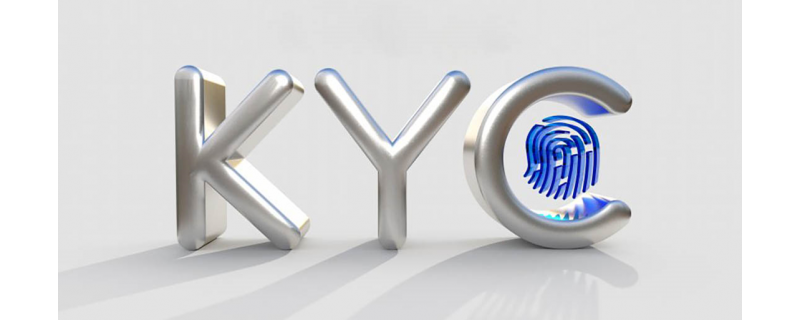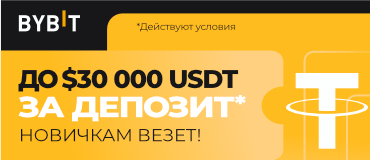KYC stands for "know your customer" and is the process of verifying the identity of customers. These standards are part of broader federal anti-money laundering (AML) regulations that apply to all financial institutions. KYC applies to all asset classes and regulated institutions around the world, and therefore to organizations that work with cryptocurrencies and blockchain as well.
Danatar Atajanov, Brand Manager of OXLY.IO, notes that the concept of KYC (Know Your Client/Customer) as an official one appeared in 2016 in the USA. The Treasury Financial Crime Enforcement Network (FinCEN) introduced KYC requirements, although this acronym had already been used in business everyday life. KYC requirements are part of the anti-money laundering (AML) package.
AML is an abbreviation of anti-money laundering. In full, this activity is designated as anti-money laundering and countering the financing of terrorism and the proliferation of weapons of mass destruction.
The expert explained that this wording had appeared in 1989 in Paris as a result of the creation of the international non-governmental organization The Financial Action Task Force, abbreviated as FATF.
The degree of complexity of the procedure may vary, but in general terms, the required data of an individual that AML officers will want to see is as follows:
- Name
- Date of birth
- Electronic mail address
- Phone number
- Address
- ID (passport, driver’s license, etc)
Most of the data one way or another will have to be confirmed, using photos or scans of documents, selfies with them, and phone number verification via SMS. In some cases, remote or even face-to-face interviews are conducted. Verification procedures may vary depending on various factors. But all actions are aimed at the same goal: the collection and verification of customer data. This includes due diligence and ongoing monitoring. KYC is part of the AML activities that comprise the verification of personal data and, possibly, extended due diligence.
What is KYC for?
The overall goal of KYC is to identify users. The KYC process helps to detect and prevent money laundering, terrorist financing and fraud, and also works in accordance with AML rules.

The Know Your Customer verification protocol and associated AML rules can benefit both financial institutions and their users. These rules reduce risk, increase security, protect institutional integrity, and help hold attackers accountable. In turn, regulators are happy, and customers can feel more confident and trust the companies they do business with. When used effectively, KYC can also replace legacy verification systems.
We asked experts why exchange users went through the KYC verification protocol, what the use of it was, and why this moment was so important.
Marat Mynbaev, Founder of Amir Capital Group, an expert in fundamental and technical analysis of the crypto market, a professional investor and crypto trader, emphasizes that for a crypto exchange, the KYC verification protocol is an important indicator that a potential client is a bona fide user, not a bot program, does not have a “dubious past” and is not going to use fraudulent / criminal schemes for profit.
As a result of verification, the user receives:
- Full access to the functionality of the platform or application;
- Security of personal data;
- Protection against unauthorized access to data;
- The ability to restore the account in case of blocking / hacking and return the invested funds;
- Additional bonuses from the exchange, for example, an increased deposit and withdrawal limit.
Besides the expert notes that, by identifying a person, the exchange takes responsibility for the storage of confidential personal data in accordance with new laws on the protection of personal data, for example, under the new EU General Data Protection Regulation (GDPR). The introduction of the KYC protocol is beneficial not only for the trading platform but also for the user, ensuring the transparency of their relationship.
Denis Smirnov, Liquidity Manager at EMCD, says,
“Globally, the reason is quite simple: governments usually try to fight illegal money and terrorist financing, and citizens are afraid of losing their funds and demand protection against the government. If this does not happen, the people begin to grumble and protest, and governments usually do not like this, so they have to work in this direction and tighten the requirements for checking customers of financial institutions. KYC is the principle of activity of financial institutions which obliges them to identify the counterparty before allowing them to conduct a financial transaction. Such activity allows you to monitor financial transactions and, as a result, reduce the risks of clients, prevent bribery, corruption and financing of various bad things.”
Andrey Tugarin, Managing Partner of GMT Legal, notes that the passage of KYC by the user is due to the requirement of the exchange for it to comply with legal requirements. That is, for the user, this is not an optional procedure, but a mandatory one if they want to use the services of the exchange. The requirement for customer verification (KYC) is established at least by the Fifth EU Directive of 2018. Violation of the requirement can lead to the imposition of fines, blocking the activities of the exchange and litigation.
Ignes Terrenas, Head of Communications at Bybit, gave his opinion on the matter and talked about how this system was implemented on their marketplace. He said,
“Today, most major cryptocurrency exchanges already have a Know Your Customer (KYC) rule: it is important for exchanges to understand that the client is whoever he claims to be.
“In July this year, we upgraded our KYC requirements to a two-step verification protocol to better protect our users' accounts and funds. To pass the first level of the KYC verification, users must provide identification documents and pass facial recognition. The second level of KYC requires additional confirmation of the physical address. Unverified users can withdraw up to 2 BTC daily, while KYC verified users can withdraw up to 100 BTC daily.”
Alexander Tkachenko, Founder and CEO of VNX, notes that legal business is interested in ensuring that its services are not used for money laundering purposes by criminal elements, terrorists or other illegal schemes. The KYC procedure is closely related to the AML (anti-money laundering) procedures and allows you to identify the client, conduct a due diligence check, check the sources of the funds, and be certain to some extent that the funds were not received as a result of illegal activities. Without these procedures, it will be impossible for exchanges or their clients to interact with the traditional financial world, which lives by strict regulatory rules.
Dmitry Noskov, an expert at the StormGain crypto exchange, agrees, saying,
“KYC is a mandatory verification of the personal data of a user of the crypto exchange. As part of this procedure, documents confirming the identity of the client are used, such as an identity card, utility bill or insurance number. This is an important procedure, as it allows you to identify the client of the exchange and does not allow fraudsters to gain access to his account.”
Alexander Movchan, Founder of Givetime.io, believes that the KYC verification protocol increases user confidence. The probability that a verified account will be used for laundering criminal money is reduced to almost zero.
Analyst Aziz Kenzhaev says,
“KYC verification was implemented as one of the main steps for cryptocurrency exchanges on their way to regulation. We know that cryptocurrencies may be used for illegal purposes. Thus, world governments, in particular law enforcement agencies cooperating with crypto exchanges, can find out the identity of the person who performed suspicious transactions.”
Vladislav Akeliev, Development Director of ECOS, notes that first of all, the KYC verification protocol is necessary to combat economic crimes such as money laundering and corruption. These are the requirements of state regulators which all popular exchanges are forced to follow. It is also necessary for the safety of investors so that attackers wouldn’t take their assets.

Viktor Dorokhov, teacher-practitioner of the Digital Economy program at RUDN University, shares his opinion with the readers of our journal, saying,
“Users themselves rarely take up the KYC procedure on their initiative. Such requirements are imposed by the exchanges themselves, limiting users in withdrawing funds, using API tools, and resorting to other forcing measures. This is due, as a rule, to the requirements of regulatory authorities, and the exchanges themselves are forced to take these measures in order to preserve their markets.”
Georgy Rakhaev, an attorney at Trusty Consulting, emphasizes that KYC is a part of the compliance procedure, which has become mandatory for cryptocurrency market players due to the implementation of the requirements of FATF (The Financial Action Task Force), an intergovernmental organization that develops its recommendations on combating money laundering funds, financing of terrorism and other forms of illegal use of assets. According to the expert, this procedure is based on 40 FATF recommendations implemented by member countries in their legislative acts. Users of cryptocurrency exchanges and other VASPs (Virtual Asset Service Providers) must go through this procedure so that government authorities, as part of the fight against the illegal behavior of individuals, always have the opportunity to request information about such users from major players in this market.
On October 28, 2021, FATF issued additional recommendations for working with crypto assets, which include a number of other participants in this market that were not previously included among VASPs. These additions extend the requirements that were previously imposed on cryptocurrency exchanges and similar sites (including the obligation to conduct KYC) to DEX (Decentralized Exchange), NFT exchange operators and smart contract developers. Technically, this is still difficult, but the vector of motion in this direction has already been set.
What problems does KYC solve?
A KYC verification protocol usually includes three main components:
- Customer Identification Program (CIP). Under CIP, a company identifies a potential customer and verifies their identity through reliable and independent sources. Specific terms and documents that require verification vary by local jurisdiction. At least, the firm collects the following data: client's name, date of birth and address. It can also be a social security number, driver's license and passport. Some companies ask for a video or selfie to verify their identity.
- Customer Due Diligence (CDD). This is a thorough background check of a potential client. The company needs to identify any risk that a new customer could potentially bring to the business. The verification procedure is usually performed manually by specially trained compliance specialists.
- Ongoing monitoring/risk management. The work is aimed at stopping any suspicious activity at the stage of its inception. Any financial services company must continue to closely monitor its customers and their transactions, paying particular attention to large or unusual transactions.
We also asked the experts what problems the KYC verification protocol could solve and prevent.
Marat Mynbaev believes that the introduction of the KYC protocol allows to show the financial and legislative community that the crypto exchange takes illegal and fraudulent operations seriously, is ready to prevent market participants with a dubious reputation from registering on the website and the proceeds of criminal activity to be authenticated. Since identity verification protocols are becoming one of the standards for the work of crypto-exchanges in the international financial market, it can be expected that in the future the activity will reach a higher level. Users will be able to withdraw crypto assets to fiat, hedge risks, use insurance mechanisms and other financial services.
Denis Smirnov says,
“The main programs have already been mentioned above: this is the need for the state to collect taxes and prevent the appearance of illegal funds in the ecosystem, as well as the control over the financing of terrorism and other illegal operations. These points are in focus of KYC.”
Ignes Terrenas notes that thanks to KYC, it becomes possible to detect illegal activities and suspicious behavior as early as possible. It is an effective tool to prevent illegal activities such as money laundering, financial crime or terrorist financing.

Alexander Tkachenko says,
“This is mainly the exclusion of the possibility of using services or funds received from a business for illegal purposes, and minimizing the liability of business owners, which in many countries provides not only financial sanctions but also very specific criminal penalties.”
Andrey Tugarin points out that user verification, the KYC process itself, solves one of the most basic tasks: it contributes to combating money laundering and sponsoring of terrorism.
Dmitry Noskov says,
“The KYC verification protocol helps prevent fraudsters from accessing the personal data of exchange clients or their accounts and withdrawing funds.”
Alexander Movchan notes that the KYC verification protocol makes it possible to counter money laundering on exchanges, but so far only on centralized ones. The decentralized ones are left without control.
Aziz Kenzhaev says,
“After the introduction of KYC, the detection of crimes related to cryptocurrencies has significantly increased, and there are many of them, not only laundering but also illegal receipt of funds.”
Vladislav Akeliev agrees with the opinions of previous experts that the KYC verification protocol can reduce the number of economic crimes commited using cryptocurrency.
Victor Dorokhov says,
“According to official explanations, the KYC verification protocol helps protect users from fraud, but in reality, the procedure is necessary to comply with the requirements of regulatory authorities.”
Danatar Atajanov emphasizes that earlier the cryptocurrency business rarely requested information from customers for KYC. But as decentralized finance has grown in popularity, cases of fraud and criminal use of digital financial resources have become more frequent.
The main task of KYC is to ensure the security and development of the business and the client. As a result of the activities carried out,
- The crypto company knows its clients and guarantees their legality;
- The assets involved in transactions are also white;
- Financial laws are respected by all parties;
- The crypto company can conduct business internationally;
- Fiat payment systems and services trust crypto companies.
In law-abiding Germany, the Federal Financial Supervisory Authority (BaFin) published a special “Anti-Money Laundering Guidelines for Crypto Businesses”. In the manual, the regulator presents three main topics in combating money laundering:
- Management of risks. It is important for every registered crypto company in Germany to have an effective risk management system, including risk analysis.
- Customer due diligence obligations. BaFin also provides information on customer due diligence obligations, including the fact that a crypto company must necessarily verify its customers and partners.
- Suspicious activity reports. A cryptocurrency company is required to report all suspicious transactions to the financial intelligence service.
The expert adds,
“In their activities, crypto companies often face misunderstanding or even rejection of AML/KYC principles. If you are going to invest in cryptocurrencies, then you should not be afraid of KYC procedures. Such a check is rather an indicator that the crypto company is responsible for its work and provides a safe space for mutually beneficial operations.”
Georgy Rakhaev notes that, first of all, the KYC verification protocol reduces the number of illegal assets in circulation and makes it possible to effectively combat the illegal use of cryptocurrencies. At the same time, the share of "dirty" crypto assets is only a few percent of the total, and KYC requirements apply to almost everyone. The question of proportionality of such requirements and prevention of abuse by public authorities remains.
According to the expert, indirectly, the KYC procedure makes it possible to create a basis for future taxation of crypto assets after the introduction of relevant regulations by interested states, since without such a procedure it is not possible to establish the ownership of a specific account with specific crypto assets on a specific exchange to a specific person.
KYC and blockchain anonymity
Crypto exchanges are introducing various levels of the KYC protocol. Some allow users to register an account without extensive verification, but with very limited functionality. These exchanges are exposed to regulatory risks. Other websites allow to create profiles only for clients who are ready to provide photos of their documents. The more carefully the verification of new users is carried out, the more functions of the exchange become available to them.
We asked the experts if the KYC procedure contradicted the very nature of cryptocurrencies and blockchain, which implies complete anonymity and confidentiality.

Alexander Tkachenko says,
“Although initially the blockchain was supported and promoted by crypto maximalists, today it has gone beyond just a niche project. We should note that modern crypto screening systems often eliminate absolute anonymization, and using the ‘digital footprint’ in crypto investigations, specific personalities and beneficiaries are increasingly being identified. As an example, we can mention the recent inclusion in the sanctions lists (SDN) of the well-known crypto exchange Suex.
“Further evolution of the blockchain and integration with the financial world will consistently reduce the anonymity of the technology, and many users will go for it voluntarily in order to work with the traditional financial world. At the same time, I believe that niche ‘anonymous’ projects (such as Monero) will remain in demand, but will have difficult prospects in terms of conversion to the fiat world.”
Marat Mynbaev reminds that the features of cryptocurrency and blockchain are decentralization and complete anonymity. This means that no control body controls the system completely, allowing each exchange participant to feel complete freedom. Blockchain transactions are stored on many computers around the world, representing a network of peer-to-peer nodes, not in a single database. What are users afraid of? The main and not unfounded fear is the leakage of personal data into the network through loopholes in the software of exchanges, the potential possibility of issuing access to confidential information to a third party, and the need to pay taxes on income from trading crypto assets (already in a number of states).
The expert adds,
“In defense of the exchanges, we can say that they are increasing the number of specialists who every day more and more strengthen the protection of the system from hacking, introducing new technologies to improve the efficiency of operations and other labor-intensive processes. Supervisory and regulatory authorities need a good documented reason to obtain personal data of users.”
Ignes Terrenas emphasizes that the KYC procedure helps cryptocurrency exchanges to ensure compliance with the requirements of the regulator. Cryptocurrency itself is not completely anonymous or confidential. There is a kind of accounting: there is data on the time, amounts of transactions and even wallets from which money was sent and to which money was received. Everything is tracked using blockchain technology, even the beef sold by ranchers in Wyoming (the state is famous for its enthusiasm about crypto and blockchain initiatives).
Denis Smirnov confirms the contradiction, saying,
“To some extent, of course, there is a contradiction. Despite the fact that cryptocurrencies appeared as a response to the imperfection of the modern financial system, becoming the realization of the cypherpunks' dream of a new financial revolution, the most reasonable and effective option for the development of the industry is the evolutionary path, and therefore the gradual integration of the cryptocurrency industry into the traditional financial system is an inevitable reality. Nevertheless, some of the mechanisms of the cryptocurrency industry make it possible to resist the will of the state, so the task facing the regulatory authorities is rather non-trivial: it is necessary to create a model of regulation that would allow industry persons to feel comfortable, without risking ‘frightening’ them into a gray zone where control over their actions will be difficult.”
Dmitry Noskov says that although the KYC procedure to some extent, of course, contradicts the essence of cryptocurrencies and blockchain, without it exchanges cannot guarantee their users the safety of their funds, because some, at least minimal, method of identification is needed.
Georgy Rakhaev says,
“This is a matter of the personal views of each user. From the point of view of strict compliance with the law and regulatory requirements, KYC must be carried out. Many crypto enthusiasts, however, do not agree with this and, to this day, refrain from going through such a procedure. An example of such views is the website ‘KYC? Not me!’, which offers options for working with crypto assets on websites that do not require KYC from their users. Another example is the ‘no-KYC only’ website, which describes why this procedure should not exist.
“If we refer to the Bitcoin White Paper and Satoshi Nakamoto's messages on the bitcointalk forum, then ideologically, the KYC procedure (as well as the storage of crypto assets in ‘hot’ wallets) contradicts the intention of the author of the first cryptocurrency. What position to adhere to? Everyone decides for themselves (until the states introduce some liability). The introduction of the KYC procedure makes the market more transparent and secure, while its absence allows you to be closer to the ideas that were originally laid down in the foundation of the cryptocurrency.”
Vladislav Akeliev believes that there is some contradiction between KYC and the nature of cryptocurrencies. The blockchain concept initially implied complete anonymity (even of its creator). But without the legitimization of cryptocurrencies, one cannot see its integration into all economic processes, so it does not interfere, but helps to bring the crypto future closer.
Aziz Kenzhaev believes that KYC does not contradict the essence of cryptocurrencies and blockchain if anonymity and confidentiality are correctly interpreted. He says,
“I will send 100 dollars now and no one will know about it. Only the address of the recipient and the address of the sender will be indicated in the blockchain browser, but the full name and other data will not be disclosed. Naturally, the exchange or company from whose wallet I sent the funds has all my data, but according to the user agreements and privacy policy of each such company, the data can only be provided to the authorities and only upon their official request.”
Danatar Atajanov notes that KYC, AML and other procedures developed by regulators complicate the illegal activities of organized crime and terrorists, preventing them from turning the proceeds of crime into legal proceeds. And today, cryptocurrency and traditional financial systems are finding more and more integration points. Some blockchain and cryptocurrency adherents believe that the verification of users of crypto services and the concentration of their data on the side of crypto platforms violates the principle of anonymity and decentralization. Perhaps this is partly true. The expert notes that this is the price we pay for security and the ability to use the entire array of financial instruments of the cryptocurrency and fiat financial systems. With the rapid expansion of the crypto market and a multitude of new financial services at the junction of the two systems, the full access to a variety of fiat resources is impossible without the introduction of AML procedures. As a result, the client receives security and a wide range of financial instruments that ensure profitable transactions.

Andrei Tugarin says,
“I do not agree that the nature of cryptocurrencies implies complete anonymity and confidentiality. The essence of cryptocurrencies is the exclusion of centralized regulation of transactions between network participants. Complete anonymity and confidentiality, in turn, contradict the essence of legal relations, since in no country the law can apply to an anonymous person. In other words, the user being anonymous cannot be protected by law. KYC is just a tool that aims more to protect users than to discredit them.”
Viktor Dorokhov believes that the KYC procedure is contrary to common ideas and ideology among the crypto community. But the need to go through this procedure becomes inevitable when trading on centralized exchanges, and it is there that the main market liquidity is located.
Alexander Movchan notes,
“Blockchain transactions are accessible to everyone. That is, everyone can see what went where. But who is behind a certain wallet, into which criminal money came through 40–60 links, and whether they are to be blamed for this is another question. Opinions in the world are split: on the one hand, the crypto world wants anonymity, but on the other hand, it wants security, in particular, from social engineering.”
Is there an alternative to KYC?
Is it possible to replace KYC with anything? With this question, we turned to the experts. In theory, can users remain anonymous without losing the security benefits of KYC?
Marat Mynbaev, Founder of Amir Capital Group, an expert in fundamental and technical analysis of the crypto market, a professional investor and crypto trader, explained that the creation of an effective technology for protecting confidential data and controlling financial platforms was a key request on crypto exchanges. One of the options that could supplant the KYC protocol is regulatory technology RegTech. It simplifies user compliance by providing faster, more flexible, integrated, reliable and more cost-effective controls.
The expert noted that theoretically, users could remain anonymous by adhering to such rules: use mixers and VPNs, hide addresses and change them regularly, use cash and decentralized sites or p2p platforms, buy coins with increased anonymity. However, one should be aware that along with anonymity, the high risk of operations and the attention of regulators to the activities of the corresponding website are growing in parallel. There are still platforms on the international crypto market that do not use personal data verification protocols. It is difficult to say how long they will exist in the legal field. Under the pressure of protocols and regulations, over time they will go into the shadow sector.
Denis Smirnov, Liquidity Manager at EMCD, says,
“Yes! And, most importantly, products in the field of single sovereign identity and decentralized credit scoring and reputation are one of the quite rapidly developing areas in the industry, which are designed to solve the problem of personal information disclosure while maintaining the anonymity of users, the ability to take into account their rating and solve the aforementioned problems of control over financial flows. Projects such as Bloom OnRamp or Sovrin (decentralized KYC) or Сolendi (decentralized credit scoring) are designed to solve these problems.”
Andrey Tugarin, Managing Partner of GMT Legal, believes that a KYC alternative is out of the question since the KYC process is actually created in order to exclude anonymity. If a user in the modern world refuses KYC, he refuses a lot of exchanges that require this process. According to the expert, everything is always up to the user, but the market, in terms of compliance with regulation, is changing in favor of the regulator.
Ignes Terrenas, Head of Communications at Bybit, commented on the importance and indispensability of KYC, saying,
“In the previous quarter, Bybit hit a new all-time high in trading volume of $1.7 trillion, with the highest daily trading volume of almost $35 billion. With such trading volumes, the KYC procedure is necessary to increase the security level of the system—in the interests of all users. And while KYC verification is important to protect the interests of everyone, its protocols should be regularly reviewed and improved/updated to ensure that all information is collected and stored in accordance with the ever-changing needs of the market.”
Dmitry Noskov, an expert at the StormGain crypto exchange, believes that creating an alternative to KYC is currently impossible. Certain user identification procedures are still necessary. According to the expert, exchanges are already trying to minimize the number of documents whose data must be entered during registration. Probably KYC is not the worst option yet.

Alexander Movchan, Founder of Givetime.io, answers the question as follows,
“I think it is possible, but then it will be the level of trust not of the exchanges themselves, but of the blockchain, for example, verification in the same format in which transactions currently take place and are confirmed when a number of acquaintances (also verified) confirm that this address is reliable and there is a person known to them behind it. But the confirmation itself will be encrypted within the blockchain technology. But I should say that such a decision will only partially, by 30–40%, satisfy the authorities and the stock exchange.”
Georgy Rakhaev, a lawyer at Trusty Consulting, gave an example that the original TON cryptocurrency project had contained a scheme for delegating the procedure for checking user documents to some trusted centers that could, when interacting with other nodes, confirm the very fact of passing user verification without transferring their data. But this project did not come true for a number of reasons.
The expert notes that today there is a delegation of the KYC procedure to special centers, but the essence of this phenomenon does not change. He says,
“Yes, as mentioned above, not all members of the cryptocurrency community share the views of FATF on crypto assets and there are a large number of websites, forums and services that allow you to exchange, withdraw or purchase crypto assets without going through the KYC procedure. We cannot say that the costs for operations on the Bisq decentralized exchange are comparable to the usual values on centralized exchanges, but for some people this is not an obstacle for using such solutions.
“A full-fledged alternative solution with all guarantees, minimum costs and ease of use is not currently available, and it is unlikely to appear given the desire of major players to work in strict accordance with the requirements of regulators; but if a person is ready to sacrifice one of these qualities to preserve their anonymity, there will be acceptable solutions among all the variety that exists on the market.”
Analyst Aziz Kenzhaev is sure that only a digital signature can replace KYC. But to get it, you will need to provide passport data.
Danatar Atajanov, Brand Manager of OXLY.IO, believes that in the future, when big data and other identification technologies become more developed and available, the KYC procedure will be simplified. At the same time, the expert notes,
“But its essence will remain unchanged: either you know your client or you don't. I don't see the third option. The story of the Binance crypto exchange is indicative, which, avoiding the persecution of regulators, was forced in August this year to introduce mandatory verification of all users. In developed countries, financial institutions have long been guided by the principles of AML in their activities. There, KYC requirements are mandatory for all companies dealing with digital assets. And no one makes a tragedy out of it.”
Vladislav Akeliev, Development Director at ECOS, considers that a compromise could be the use of KYC only for transactions between cryptocurrencies and fiat. This will allow the investor to anonymously use cryptocurrencies, but if you need to sell or buy it for fiat, you will need to pass verification.
Viktor Dorokhov, teacher-practitioner of the Digital Economy program at RUDN University of Russia, says,
“To some extent, the situation can be changed by the development of decentralized exchanges. This will create the very balance where users can remain anonymous but will have much more responsibility for their own funds.”
























































